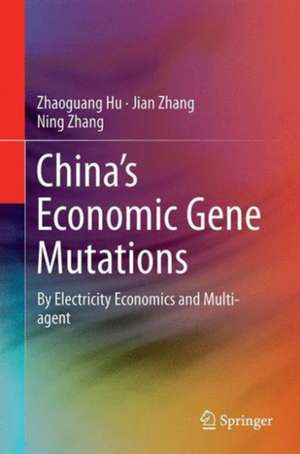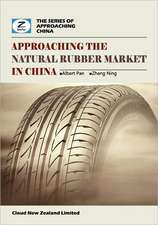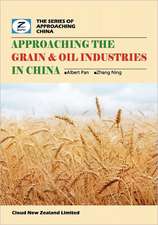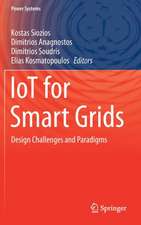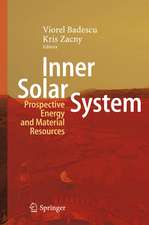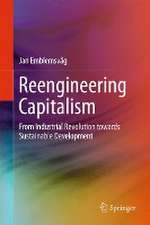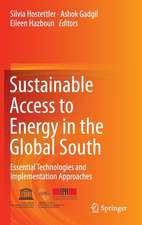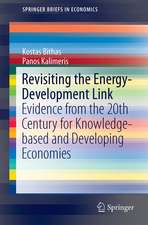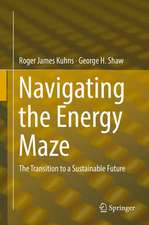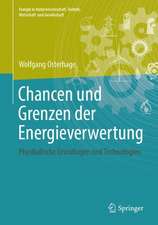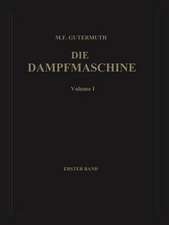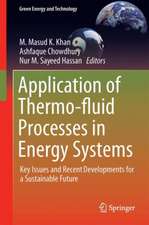China’s Economic Gene Mutations: By Electricity Economics and Multi-agent
Autor Zhaoguang Hu, Jian Zhang, Ning Zhangen Limba Engleză Hardback – 11 aug 2015
This book provides recommendations for policy makers and advisors, and is a valuable resource for researchers in the fields of economics, public policies, low-carbon development, electricity and energy. It also provides insights into China’s economic development.
| Toate formatele și edițiile | Preț | Express |
|---|---|---|
| Paperback (1) | 577.43 lei 38-44 zile | |
| Springer Berlin, Heidelberg – 22 oct 2016 | 577.43 lei 38-44 zile | |
| Hardback (1) | 604.46 lei 38-44 zile | |
| Springer Berlin, Heidelberg – 11 aug 2015 | 604.46 lei 38-44 zile |
Preț: 604.46 lei
Preț vechi: 755.58 lei
-20% Nou
Puncte Express: 907
Preț estimativ în valută:
115.68€ • 120.32$ • 95.50£
115.68€ • 120.32$ • 95.50£
Carte tipărită la comandă
Livrare economică 10-16 aprilie
Preluare comenzi: 021 569.72.76
Specificații
ISBN-13: 9783662472972
ISBN-10: 366247297X
Pagini: 491
Ilustrații: XVIII, 491 p. 285 illus., 277 illus. in color.
Dimensiuni: 155 x 235 x 27 mm
Greutate: 1.13 kg
Ediția:1st ed. 2015
Editura: Springer Berlin, Heidelberg
Colecția Springer
Locul publicării:Berlin, Heidelberg, Germany
ISBN-10: 366247297X
Pagini: 491
Ilustrații: XVIII, 491 p. 285 illus., 277 illus. in color.
Dimensiuni: 155 x 235 x 27 mm
Greutate: 1.13 kg
Ediția:1st ed. 2015
Editura: Springer Berlin, Heidelberg
Colecția Springer
Locul publicării:Berlin, Heidelberg, Germany
Public țintă
ResearchCuprins
Part one: Economic Gene Mapping in China by Electricity Economics.- China’s Electricity Economy.- Challenge-Opportunity and Mutations in China’s Economy.- Economic Gene Mapping of China.- Part two: Methodology of Agent Response Equilibrium.- Review of Economic Modeling.- Introduction of Intelligent Engineering.- Agents Response Equilibrium Model.- Individual Agent Functions and Computer Programming.- Part three: China’s Economic Simulations by Agents Response Equilibrium.- China’s Economic Simulation for the Period of Global Crisis.- China’s Economic Simulations in 2011-2014 by Agents Response Equilibrium Model.- China’s Input-output Tables of 2011-2025 Simulated by ARE.
Textul de pe ultima copertă
The book focuses on low-carbon issues and China’s economy, which is analyzed from the perspective of electricity economics. It proposes the novel concept of an “economic gene” to reflect certain characteristics of the economy. The gene mapping of China’s economy has been studied based on production functions with electricity. Economic mutations have also been studied with the aim of diagnosing problems in the economy. Two such mutations have occurred in China since 1978, the most recent being in 2012 and no further mutation is expected until 2025. The book describes the inherent quality of China’s economy from 2012 to 2025, and how mechanism reforms would greatly improve marginal representative factor productivity in this period. The agents response equilibrium (ARE) approach to simulate national economy, based on multi-agent technology is proposed. Another cornerstone of the model is the input-output table. Simulated input-output tables from 2011 to 2025 are provided in the book.
This book provides recommendations for policy makers and advisors, and is a valuable resource for researchers in the fields of economics, public policies, low-carbon development, electricity and energy. It also provides insights into China’s economic development.
This book provides recommendations for policy makers and advisors, and is a valuable resource for researchers in the fields of economics, public policies, low-carbon development, electricity and energy. It also provides insights into China’s economic development.
Caracteristici
Introduces the novel concept of economic gene mapping in electricity economics Proposes a brand new approach to simulate national economy using the agents response equilibrium model Presents a comprehensive review of China’s economic development Provides original research on low-carbon issues Includes supplementary material: sn.pub/extras
